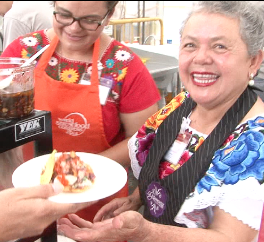Face it. Food served in the street scares you. Where are the ingredients from? How long has it been sitting out? How clean is everything?
Ask street food advocates like TV host Anthony Bourdain and Singapore food ambassador and Makansutra founder KF Seetoh and they’ll say these fears are causing you to miss out on some of the best cuisine of the world.
While hawker culture is celebrated in countries like Mexico, Vietnam and Singapore, Americans are still trying to stomach the whole street food phenomenon. Foodies in cities like LA, NY, Portland and DC are warming up, finding street food appealing if it comes in the form of unique dishes like kimchi BBQ tacos or savory waffles served from a truck.
In this video, Bourdain tells the inaugural World Street Food Congress in Singapore how to save street food culture.


